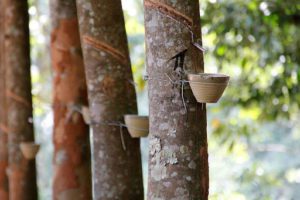Forests are very crucial in today’s connected world. They’re essential for human survival and enhancing welfare by providing oxygen and absorbing excess CO2. Beyond this environmental value, most of the things we use in our homes also come indirectly or directly from forests.
While many of these forest products are pretty obvious, there are many products that you probably don’t realize originate from trees. From food to shelter, livelihood, water, security, and everyday items, forests invariably provide us with precious resources to improve our lives in countless ways.
This reality exemplifies the value of preserving forests and trees and the importance of managing our forests responsibly. Keep reading to learn more about various products derived from forests all over the world.
 #1- Palm Oil
#1- Palm Oil
Largely an export from Malaysia and Indonesia, palm oil possesses an important standing in the global economy. It’s one of the most flexible oils among all vegetable-based oils and can be processed into several different products with different consistencies, properties, and melting points. The high-yielding crop has a low production cost, making it cheaper than many frying oils available in the markets today.
Palm oil also has a natural preservative effect, which helps extend the shelf life of various consumer products. It’s actively used in producing foods such as chocolates, margarine, cake, biscuits, and more. It’s also found in cleaning products, liquid soaps, shampoos, and cosmetics. Palm oil is one of the rare forest products that can also be used as a biofuel.
#2- Rubber
Many people don’t know that rubber, a fairly commonly used material, comes from trees grown primarily in the Southern hemisphere. It’s sourced from the rubber tree and is obtained by tapping it for its sap, known widely as latex.
Rubber trees can typically be tapped as soon as they reach approximately six years of age. Tires, condoms, tennis balls, basketballs, footballs, and many other products we use daily comprise a crucial rubber element to be manufactured.
While we don’t need to elaborate on the importance of condoms, it’s equally vital to appreciate the rubber trees for giving us countless memories of playing or watching our favorite ball-based sports.
Just thinking about each ride we’ve ever had makes us more appreciative of rubber trees because travel depends on tires, which are forest products.
#3- Chewing Gum
This is a fun revelation! The ancient Greeks used to chew on the resin or gum-like substance found in the mastic tree’s bark for centuries. Grecian women especially liked to chew the gum to sweeten their breath and clean their teeth.
The countless varieties of gums available today are evolved from the chicle-based gum introduced during the early 1860s in the United States. The chicle was derived from the sapodilla tree’s gum that grows in Central America’s rain forests.
#4 Carnauba Wax
Did you know carnauba wax is mostly sourced from the palm leaves of the Copernicia prunifera? The wax is collected by drying the palm leaves and beating them until they loosen the wax.
Most people think carnauba wax is only used in automobile waxes, but it’s also commonly used to produce dental floss, shoe polishes, and furniture or floor polishes and waxes. It’s also widely used in food products, such as coating candies.
The hypo-allergic properties of carnauba wax also make it an excellent ingredient in cosmetics like eyeliner, lipstick, foundation, eyeshadow, mascara, deodorant, etc.
#5- Sponges
Many exotic sponges and loofahs available today either are direct plant products, or are made from renewable plant-based materials such as fiber, cotton, and wood pulp. They’re fully biodegradable, plus the process used to manufacture them releases relatively fewer environmental toxins than their plastic counterparts.
#6 Wood Pulp, Paperboard, and Paper Products
The reduced newspaper distribution in the age of social media and the internet might have dipped the production of newsprint, but the production of paperboard and paper is expected to grow invariably. The use of wood pulp, paper, and paperboard is wide and ranges from commercial to home applications. Paper products are integral to our lives in myriad ways.
Think about toilet paper; a luxury no one will ever take for granted after experiencing shortages during the pandemic. Additionally, there’s nothing quite like cracking open a new book that unveils gateways to other worlds. Paper is also a sustainable alternative to hazardous plastics that harm the environment and ecosystem in unimaginable ways.
From paper straws, bags, utensils, paperboard and cardboard boxes, bamboo toothbrushes, and many other environmentally-friendly alternatives to single-use plastics, there are many reasons to ensure sustainable sourcing and production of these irreplaceable everyday items.
If you’re interested in preserving the forests, Tall Pines Forest Management is a trusted forest planning and management company that can help you resolve all your concerns regarding reforestation.
Our professional team is experienced and certified to offer a wide range of forestry services in Maine and New Hampshire. These include, but are not limited to, timber resource valuation, harvest operation oversight, timber harvesting services, wood lot assessment services, forest modeling, and even consulting on forestry investments, tax management plans, and carbon offsets.
To learn more, get in touch with our experts via email. You can also give them a call to learn why Tall Pines Forest Management will be the right fit for you if sustainably sourced forest products are important for you.


 #1- Palm Oil
#1- Palm Oil
0 Comments